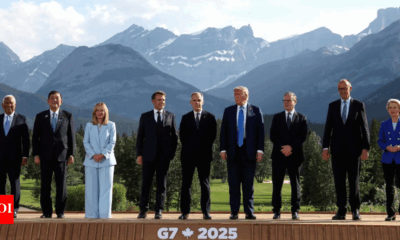Guest Writer
Law on political party funding indeed unfair
When seeking to empower society, institutions or entities, you don’t consider only those that already have capacity.
For instance what could be the rationale for government to fund Makerere University and deny Muni, Kabale or Teso Universities in the country side, whatever the grounds. You extend funding to Kings College Budo and side line the most vulnerable ones in the countryside on grounds that the former sweeps first grades which the later don’t score. The young and weak ones need and deserve the most capacitation.
Government introduced a very popular policy of affirmative action which tended to empower the vulnerable segments of society so that there would be fair competition. This has worked progressively well to empower the girl child, women and others. In relation to funding of political parties in Uganda, this policy is being applied selectively and upside down.
The parliament of Uganda enacted a law that provides funding to only those political parties that are already significantly established and most of them have been in existence for years. There are twenty six registered political parties in total and only seven qualify for the funding according to the segregative law.
It is a widely known phenomenon that parties prepare and nurture leaders. Secondly, besides the role of parties in parliament, there are other common roles which parties have to undertake. They all incur administrative costs like renting of offices and paying some technical staff. They purchase office equipment such as chairs, tables and computers etc. Those requirements don’t discriminate parties in Parliament and those outside.
All political parties if facilitated can be involved in offering alternative policy and ideas for the smooth running of Government. In several cases opposition parties mobilize the masses to participate in a series of government programmes such as the education of children, immunization against diseases, observing moral standards, sanitation, respecting the laws, healthy nutrition and others.
All political parties are a public good, having been registered by Government. None of them is engaged in profitable business. Members of all parties, regardless of the size of membership, contribute to the consolidated fund.
Choosing to selectively fund those few which are even already established and powerful is irrational, pretty unfair and is deliberately intended to lock out others in the competition. This is total marginalization.
Every year the already powerful political parties share billions of the consolidated funds, totally sidelining those which are not members. Honestly, all parties need some seed funds for their minimum operations.
There are looming elections of the women councils / committees and administration units. The seven political parties have already shared another buffalo, those outside parliament which are the majority don’t have even a rabbit to share and are expected to contest in the same elections! It is always the same case even in the general elections!
Like parliament has often found it prudent and come out to amend those obviously unfair laws, let the same law be amended or else young parties will forever remain stunted and vulnerable. Let fairness prevail.
Comments

























